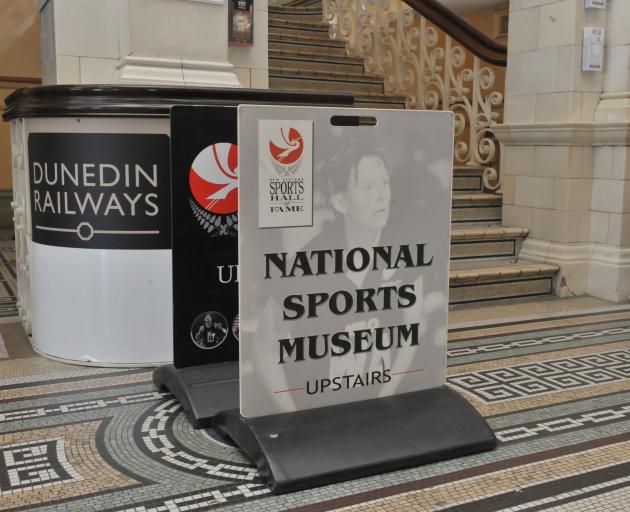
He was neither an All Black nor an All White, he did not open the batting for the Otago cricket team, and he did not take his tennis talents to Wimbledon.
He has, however, had an impact on sport in the South to rank alongside many of the greats.
Through his philanthropy, tireless efforts as an administrator, official and patron, and unashamed cheerleading for his beloved region, the much-respected knight has made a huge contribution across many codes.
He was president of New Zealand Football, the driver and patron of the Football Foundation, and a big influence on Dunedin being part of two Fifa world cup events (under-17s in 1999, under-20s in 2015); he chaired the Winter Games; he was president of the New Zealand Olympic Committee; and he was behind the establishment of the large indoor sports centre in South Dunedin that bears his family’s name.
Put simply, he has been a big player on the southern sporting scene for a long time.
And now, as he faces the toughest contest of his life, Sir Eion has one more gift for us.
He has pledged half a million dollars to help create a high-tech national sports hall of fame in Dunedin, moving the under-threat existing New Zealand Sports Hall of Fame from the Dunedin Railway Station to the Edgar Centre.
A man of vision, he wants computer graphics guru Sir Ian Taylor to lead the design of a venue with interactive elements to help promote and maintain the Hall’s stated mission: "to honour, to preserve, to educate, to inspire".
The Hall has been on oxygen since late last year when it revealed it was on the verge of closure if new funding could not be found.
We must again highlight the work New Zealand sportswriting great Ron Palenski and others have done to foster the Hall’s development since it was opened in Dunedin in 1999, and stress that we hope the facility can stay in the city.
It is exciting to envisage a future in which the revamped New Zealand Sports Hall of Fame — with interactive elements but, hopefully, a good dash of the "dusty old cabinet" flavour that often appeals to sporting trainspotters — gets a second wind at the Edgar Centre, providing education and inspiration to generations of sports fans.
And we tip our hat, yet again, to a remarkable man and his family. They are the definition of good sports.
AND ANOTHER THING
This will come as no surprise to those who gasp at its insane house prices and dread the prospect of getting caught in its traffic, but Auckland has been rated ... wait, the most liveable city in the world?
Yes, we reacted the same way. But it’s true. The Economist Intelligence Unit yesterday released its annual survey into "liveability", in which it uses various mathematical formulae to determine where 140 cities rank.
Six of the top 10 cities in the first post-Covid survey, perhaps unsurprisingly, come from Australia and New Zealand, largely due, the report says, to "tight border controls" that "allowed residents to live relatively normal lives”.
Auckland jumped from 12th to top spot, while Wellington leaped from 25th to fourth.
There is no mention of Dunedin or Invercargill. But we have a few arguments that both can rival Auckland for many aspects of "liveability".
Comments
Dear Editor, yesterday the Prime Minister announced that, "I view the commission's report as one of the most significant documents I'll receive in my time as prime minster." Referring to the the final recommendations made by the climate commission. And yet you have decided to make your editorial about a sports museum and an obscure survey!
Right now we are in the midst of a climate crisis – it is a climate emergency – as last reported NZ emissions are still rising - yet you and your reporters have so far failed to write a single word (you published a RNZ report) about the release of a report which will undoubtedly change all our future lifestyles.
You ignore world stories like the record setting carbon dioxide levels in the atmosphere and instead report on the publishing of a children's book! And when you do report on an environmental issue it is normally relegated to the rural or lifestyle section. I put it to you that you have a civil, even a moral duty to prepare the people of Otago for the changes ahead, to convey the urgency for action and to educate why that action is absolutely necessary.












